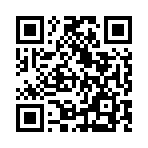Path
Syntax
Returns
The Path method on a Page object returns the logical path of the given page, regardless of whether the page is backed by a file.
A logical path is a page or page resource identifier derived from the file path, excluding its extension and language identifier. This value is neither a file path nor a URL. Starting with a file path relative to the content directory, Hugo determines the logical path by stripping the file extension and language identifier, converting to lower case, then replacing spaces with hyphens. Path segments are separated with a slash (/).
{{ .Path }} → /posts/post-1Beginning with the release of v0.92.0 in January 2022, Hugo emitted a warning whenever calling the Path method. The warning indicated that this method would change in a future release.
The meaning of, and value returned by, the Path method on a Page object changed with the release of v0.123.0 in February 2024.
The value returned by the Path method on a Page object is independent of content format, language, and URL modifiers such as the slug and url front matter fields.
Examples
Monolingual site
Note that the logical path is independent of content format and URL modifiers.
| File path | Front matter slug | Logical path |
|---|---|---|
content/_index.md | / | |
content/posts/_index.md | /posts | |
content/posts/post-1.md | foo | /posts/post-1 |
content/posts/post-2.html | bar | /posts/post-2 |
Multilingual site
Note that the logical path is independent of content format, language identifiers, and URL modifiers.
| File path | Front matter slug | Logical path |
|---|---|---|
content/_index.en.md | / | |
content/_index.de.md | / | |
content/posts/_index.en.md | /posts | |
content/posts/_index.de.md | /posts | |
content/posts/posts-1.en.md | foo | /posts/post-1 |
content/posts/posts-1.de.md | foo | /posts/post-1 |
content/posts/posts-2.en.html | bar | /posts/post-2 |
content/posts/posts-2.de.html | bar | /posts/post-2 |
Pages not backed by a file
The Path method on a Page object returns a value regardless of whether the page is backed by a file.
content/
└── posts/
└── post-1.md <-- front matter: tags = ['hugo']When you build the site:
public/
├── posts/
│ ├── post-1/
│ │ └── index.html .Page.Path = /posts/post-1
│ └── index.html .Page.Path = /posts
├── tags/
│ ├── hugo/
│ │ └── index.html .Page.Path = /tags/hugo
│ └── index.html .Page.Path = /tags
└── index.html .Page.Path = /Finding pages
These methods, functions, and shortcodes use the logical path to find the given page:
| Methods | Functions | Shortcodes |
|---|---|---|
Site.GetPage | urls.Ref | ref |
Page.GetPage | urls.RelRef | relref |
Page.Ref | ||
Page.RelRef | ||
Shortcode.Ref | ||
Shortcode.RelRef |
Specify the logical path when using any of these methods, functions, or shortcodes. If you include a file extension or language identifier, Hugo will strip these values before finding the page in the logical tree.
Logical tree
Just as file paths form a file tree, logical paths form a logical tree.
A file tree:
content/
└── s1/
├── p1/
│ └── index.md
└── p2.mdThe same content represented as a logical tree:
content/
└── s1/
├── p1
└── p2A key difference between these trees is the relative path from p1 to p2:
- In the file tree, the relative path from p1 to p2 is
../p2.md - In the logical tree, the relative path is
p2
Remember to use the logical path when using any of the methods, functions, or shortcodes listed in the previous section. If you include a file extension or language identifier, Hugo will strip these values before finding the page in the logical tree.
